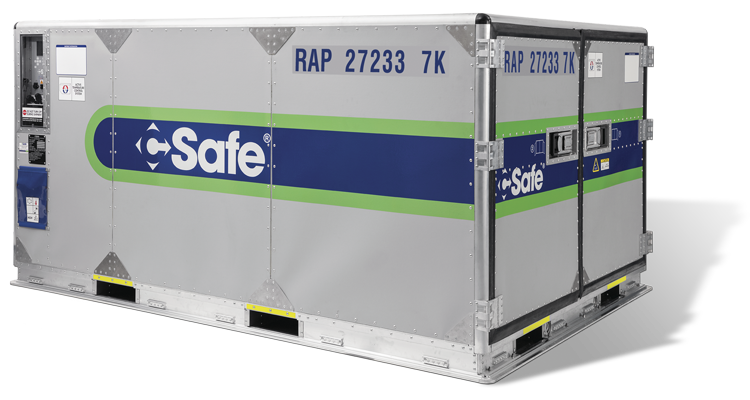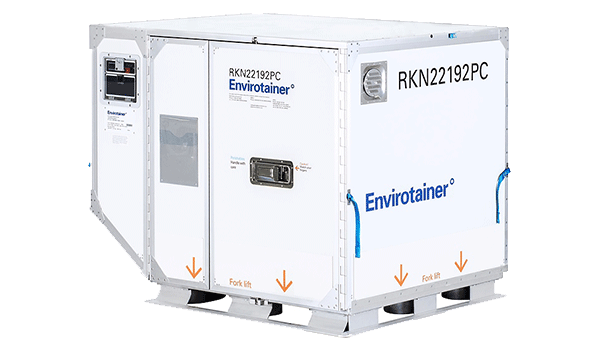- Joined
- Jul 25, 2008
- Messages
- 15,369
- Points
- 113
Regional port, regional air hub, financial centre (and money laundering hub), medical hub, education hub, biomedical hub, fintech hub. Now SG can be pandemic hub.
Changi Airport seeks to be hub for distribution of Covid-19 vaccine to the region
The first batch of Covid-19 vaccines could soon arrive in Singapore. As some vaccines require specifically low temperatures and need to be distributed in a series of transportation and storage links called a cold chain.

Toh Ting Wei
PUBLISHED 9 Dec 2020
SINGAPORE - The Republic is ready to be a hub for the movement of Covid-19 vaccines to the region, with shipments from Europe expected to go through Singapore to South-east Asia and South-west Pacific when broader regulatory approval is secured.
Mr Ho Yuen Sang, director of aviation industry at the Civil Aviation Authority of Singapore (CAAS), said Singapore can play a distribution role for areas where infrastructure to handle large volumes of vaccines may be limited.
"In such areas, they may prefer to take more frequent delivery of their vaccines in smaller volumes so as not to overwhelm their local cold-chain handling capacity," explained Mr Ho.
Pfizer's vaccine needs to be kept at minus 70 deg C, and Moderna's needs to stored at minus 20 deg C.
Mr Ho said Singapore's air connectivity as well as its ability to store shipments at low temperatures puts it in a good position to temporarily store the vaccines.
He was speaking at a media briefing on Tuesday (Dec 8) by the Changi Ready Taskforce to explain Singapore's readiness to handle Covid-19 vaccine air cargo.
The task force, co-led by the CAAS and Changi Airport Group (CAG), comprises 18 members, including Singapore Airlines (SIA), ground handlers, logistics partners and the authorities.
On Singapore's ability to maintain the cold chain, CAG managing director for air hub development Lim Ching Kiat said: "We have placed a lot of emphasis on strengthening Changi's competitive advantage in terms of pharma cargo shipment.
"So Changi Airport has, especially in recent years, become the key preferred hub for pharmaceutical shipments."
A dozen firms in the Changi air hub have received international certification for pharmaceutical handling, and ground handlers Sats and dnata have also invested in capabilities to maintain an unbroken cold chain.
The task force said that SIA also operates multiple weekly flights to key European pharmaceutical hubs, such as Amsterdam, Brussels and Frankfurt, and has a wide network in South-east Asia and South-west Pacific, which includes Australia and New Zealand.
The first batch of Pfizer's vaccine is being manufactured in the Belgian town of Puurs and will be transported from Brussels.
Major logistics players such as DHL, FedEx and UPS also have regional hubs in Singapore with strong network connectivity from Changi Airport, noted the task force.
Mr Lim said: "Changi Airport, together with the authorities, will be trying to engage some of the key shippers to sell the strengths of the Changi Air Hub as a whole, how we have experience in handling pharmaceuticals, and for this exercise we will do it in a safe manner."
The move to position Singapore as a hub to distribute vaccine cargo to the region comes amid a growth in cargo handling.
CAG said cargo flights at Changi Airport have tripled from last year to 950 flights weekly as at Dec 1 with about 80 cities connected through these cargo flights.
On the significance of Changi working to be a hub for the distribution of Covid-19 vaccines, Mr Lim said it represents a humanitarian effort and helps bring cargo business to the airport.
He added: "The widespread vaccine distribution is a very key part to the recovery of passenger travel, so we also have a very vested interest to make sure that.... vaccine (distribution) is made as efficient and as quick as possible."
Changi Airport seeks to be hub for distribution of Covid-19 vaccine to the region
The first batch of Covid-19 vaccines could soon arrive in Singapore. As some vaccines require specifically low temperatures and need to be distributed in a series of transportation and storage links called a cold chain.

Toh Ting Wei
PUBLISHED 9 Dec 2020
SINGAPORE - The Republic is ready to be a hub for the movement of Covid-19 vaccines to the region, with shipments from Europe expected to go through Singapore to South-east Asia and South-west Pacific when broader regulatory approval is secured.
Mr Ho Yuen Sang, director of aviation industry at the Civil Aviation Authority of Singapore (CAAS), said Singapore can play a distribution role for areas where infrastructure to handle large volumes of vaccines may be limited.
"In such areas, they may prefer to take more frequent delivery of their vaccines in smaller volumes so as not to overwhelm their local cold-chain handling capacity," explained Mr Ho.
Pfizer's vaccine needs to be kept at minus 70 deg C, and Moderna's needs to stored at minus 20 deg C.
Mr Ho said Singapore's air connectivity as well as its ability to store shipments at low temperatures puts it in a good position to temporarily store the vaccines.
He was speaking at a media briefing on Tuesday (Dec 8) by the Changi Ready Taskforce to explain Singapore's readiness to handle Covid-19 vaccine air cargo.
The task force, co-led by the CAAS and Changi Airport Group (CAG), comprises 18 members, including Singapore Airlines (SIA), ground handlers, logistics partners and the authorities.
On Singapore's ability to maintain the cold chain, CAG managing director for air hub development Lim Ching Kiat said: "We have placed a lot of emphasis on strengthening Changi's competitive advantage in terms of pharma cargo shipment.
"So Changi Airport has, especially in recent years, become the key preferred hub for pharmaceutical shipments."
A dozen firms in the Changi air hub have received international certification for pharmaceutical handling, and ground handlers Sats and dnata have also invested in capabilities to maintain an unbroken cold chain.
The task force said that SIA also operates multiple weekly flights to key European pharmaceutical hubs, such as Amsterdam, Brussels and Frankfurt, and has a wide network in South-east Asia and South-west Pacific, which includes Australia and New Zealand.
The first batch of Pfizer's vaccine is being manufactured in the Belgian town of Puurs and will be transported from Brussels.
Major logistics players such as DHL, FedEx and UPS also have regional hubs in Singapore with strong network connectivity from Changi Airport, noted the task force.
Mr Lim said: "Changi Airport, together with the authorities, will be trying to engage some of the key shippers to sell the strengths of the Changi Air Hub as a whole, how we have experience in handling pharmaceuticals, and for this exercise we will do it in a safe manner."
The move to position Singapore as a hub to distribute vaccine cargo to the region comes amid a growth in cargo handling.
CAG said cargo flights at Changi Airport have tripled from last year to 950 flights weekly as at Dec 1 with about 80 cities connected through these cargo flights.
On the significance of Changi working to be a hub for the distribution of Covid-19 vaccines, Mr Lim said it represents a humanitarian effort and helps bring cargo business to the airport.
He added: "The widespread vaccine distribution is a very key part to the recovery of passenger travel, so we also have a very vested interest to make sure that.... vaccine (distribution) is made as efficient and as quick as possible."














